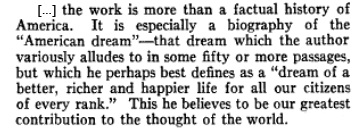Former Goldman Sachs exec Leon Cooperman super hates Elizabeth Warren, and he has been spending a lot of time on TV saying so.
Wall Street billionaires and banking honchos in general hate Warren, not only because she’s proposed a wealth tax, but because she has been extremely effective in calling them out for being greedy scumbags in Senate hearings, etc., so their dislike of her is unsurprising.
Leon Cooperman has an estimated fortune of $3.2 billion, and he is also a very credibly alleged cheat who had to pay insider trading fines and penalties of $4,947,139 (including $1,759,049 in “disgorgement of ill-gotten gains”) to the SEC in May 2017.
How such a person would consider himself fit to hold forth on politics, or public matters of any kind, is a mystery. An even bigger mystery is why CNBC would give him a platform, whence he recently yelled at Senator Warren, and literally wept—either at the thought of having to pay more taxes, or out of sheer patriotism. (“I care.”)
Elizabeth Warren’s campaign is currently selling “Billionaire Tears” mugs in response to this fiasco.

Anyhow, what I’m writing to address here are two of Leon Cooperman’s cherished beliefs. The first is that he, Leon Cooperman, is an exemplar, as he apparently considers himself, of “the American Dream.” (“This is the fucking American dream she is shitting on,” he wailed recently, at Warren’s proposal that he pay a wealth tax.)
Whatever one may think of “the American Dream” the phrase is, in its original meaning, an egalitarian dream; a dream of ease and comfort for everyone, and explicitly not a dream of wealth, obscene or otherwise.
The phrase “the American Dream” was popularized by James Truslow Adams in the sentimental 1931 book, The Epic of America, wherein it acquires a range of meanings: a Jeffersonian “belief in the common man”; a world in which “the common man as well as the leader was hoping for greater freedom and happiness for himself and his children”; “the establishment of government by free consent of all.”
A reviewer of The Epic of America in the September 1932 number of World Affairs wrote:

James Truslow Adams could not possibly have been clearer about how low he rated people like Leon Cooperman.
I take, for the most part, but little interest in the great gifts and Foundations of men who have incomes they cannot possibly spend, and investments that roll like avalanches […] A system that steadily increases the gulf between the ordinary man and the super-rich, that permits the resources of society to be gathered into personal fortunes that afford their owners millions of income a year, with only the chance that here and there a few may be moved to confer some of their surplus upon the public in ways chosen wholly by themselves, is assuredly a wasteful and unjust system. It is, perhaps, as inimical as anything could be to the American dream.
James Truslow Adams, The Epic of America
According to Adams, in other words, wealth like Cooperman’s actively prevents the realization of “dream of a better, richer and happier life” for everyone. His money, hoarded and unshared, means that the institutions that serve the most people, like libraries and schools and the EPA and the FDA, will go unfunded. It’s money that might have been paid, first in taxes, and then in thousands of salaries, which would then be taxed and spent, circulated and recirculated throughout the economy. But Cooperman’s fortune is socked away for his benefit alone, made sterile, instead of moving from hand to hand as it should. Now extrapolate from Cooperman through Bezos, Zuckerberg, Musk, Gates, Buffett, et al.
Here’s a terrific visualization of how this works from @betty__cam on Twitter.
Cooperman and those like him, who hoard wealth and keep it from taxation, are not the realization of the original “American Dream.” They are its worst enemies.
Secondly, it is high time to repudiate the ridiculous claim that “people don’t hate the wealthy, they want to be them” (q.v. chyron above.)
Ahahahaa wat, hell no. I want prosperity to increase for all. Anybody whose idea of wealth includes a reasonable degree of comfort and ease, but not private jets, zillions of servants or cheating in the stock market, necessarily detests Leon Cooperman & co., not merely because they are aesthetically disgusting, which damn, but exactly because they’re preventing progress, preventing prosperity from spreading.
In case you think private philanthropy is some kind of huge gift to society that absolves the billionaires of their sins, think again.
Billionaires embody human failure, not “success.” Amassing unspendable amounts of wealth is grossly immoral—exponentially so, in a time of vast inequality, resource failure and escalating human suffering—just like James Truslow Adams, popularizer of the phrase “The American Dream,” said in 1931.
(Ed. note: Amended 11/20/19 to include Twitter data visualization from @betty__cam.)






